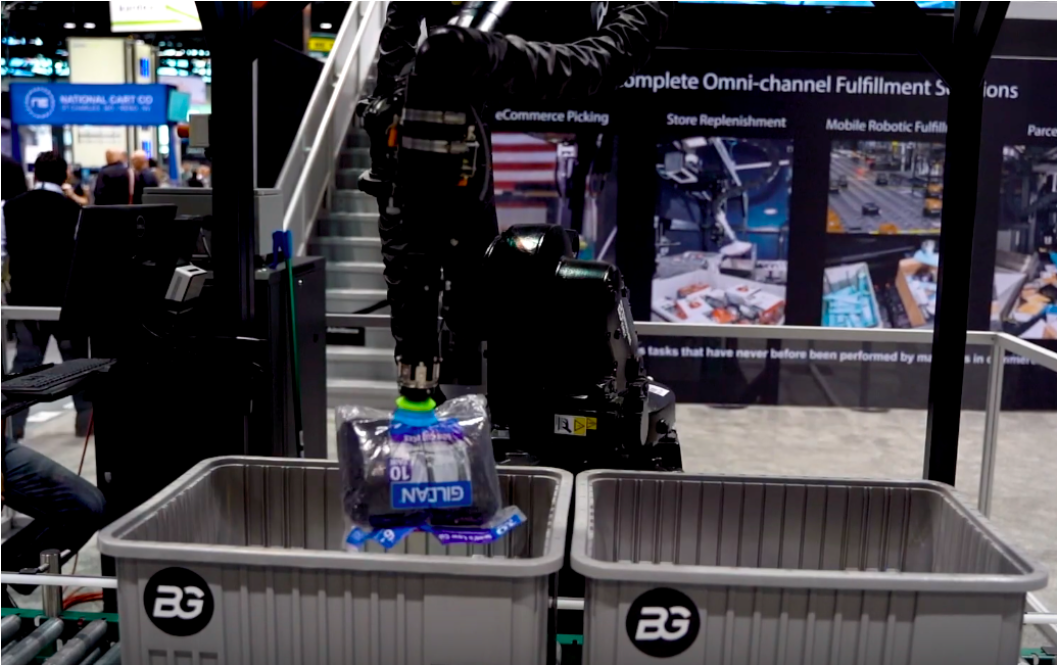
Nitheesh NH
In our AI in Retail series, we discuss how AI is transforming the way retailers operate and interact with customers. In this report, we discuss the adoption of AI in retail and the global growth in funding for AI startups. We also outline recent industry developments in the context of the coronavirus pandemic.
Growing Adoption of AI in Retail and More Widely
In March 2020, MIT Technology Review Insights revealed the results of a survey on AI applications that was conducted in January and February and involved 1,004 global senior executives from US companies across different sectors and regions of the world. Of the surveyed organizations, 87% had begun to deploy AI in 2019—notably in the healthcare, manufacturing and retail sectors—up from 72% in 2018. In addition, 66% of the surveyed executives stated that their companies are willing to share internal data externally, in order to help develop AI-enabled efficiencies, products or even value chains.
In terms of difficulties in implementing AI solutions, 51% of survey respondents said that their firms struggle most with the change management involved in modifying business processes to effectively leverage AI systems. Data challenges ranked second (48%) and includes difficulties in integrating unstructured data and interfacing with open-data platforms.
AI Startup Funding Reaches New High
Total funding raised globally by AI startups saw a year-over-year increase of 20% in 2019, to $26.6 billion, according to market intelligence firm CB Insights. This investment spanned an estimated 2,235 deals worldwide, compared to 1,940 in 2018.
Figure 1. Total Funding Raised Globally by AI Startups, 2016–2019 (USD Bil.)
[wpdatachart id=45]
Furthermore, The National Venture Capital Association estimated that AI-related companies raised $18.4 billion in the US in 2019, amid a decline in overall venture capital spending. We believe that the surge in AI investment last year was due to the market widening as companies sought to accelerate their organizational digital transformation.
Two AI companies that have raised significant funding in 2020 so far are Deep North and Berkshire Grey, both of which have developed systems for applications in brick-and-mortar retail.
Deep North, a startup focused on AI-powered video analytics, announced on March 12, 2020, that it raised $25.7 million in a Series A funding round led by Celeres Investments. The company, which has offices in Sweden and the US, aims to help brick-and-mortar locations—such as shopping centers and transportation hubs—to create better customer experiences and increase consumer traffic and conversion.
Deep North has built an analytics platform that combines AI and computer vision to analyze behavioral metrics in the physical world. The platform uses video footage from retailers’ CCTV systems and other cameras to conduct real-time data analytics on consumer behavior, including engagement, gestures and footfall traffic patterns. This enables retailers to implement more informed marketing strategies and provide a better shopping experience for consumers.
Berkshire Grey raised $263 million in Series B financing, led by SoftBank, in January this year. The company specializes in AI-enabled robotic solutions for omnichannel fulfillment. It announced the launch of its second-generation Robotic Store Replenishment (RSR) system on March 24, 2020. The solution operates as a continuous and autonomous process that fulfills store replenishment orders and is integrated into standard distribution processes, often working alongside manual break-pack operations. The RSR system is designed to reduce inefficiencies in picking small quantities of inventory.
[caption id="attachment_107149" align="aligncenter" width="700"] Source: Berkshire Grey/YouTube[/caption]
AI Applications amid the Coronavirus
C3.ai, Microsoft and a number of leading universities together launched the C3.ai Digital Transformation Institute (C3.ai DTI) on March 26, 2020. This research consortium aims to speed the pace of digital transformation in business, government and society through AI application. With the coronavirus pandemic having caused a lot of retailers to close stores across the globe, C3.ai DTI’s first call for research proposals invites researchers to use AI techniques to mitigate the impact of the current situation. Ranging from $100,000 to $500,000 for each project, up to $5.8 million in total funds will be awarded from this first call. In addition, C3.ai and Microsoft will provide the funding recipients with cloud computing, supercomputing, data access and AI software resources and technical support.
Also in response to the global pandemic, foot-traffic data analytics company Placer.ai, released its COVID-19 Retail Impact Tracker in March 2020. The tracker provides data on the impact of the coronavirus on the store traffic of more than 70 brands and retailers in the US.
Source: Berkshire Grey/YouTube[/caption]
AI Applications amid the Coronavirus
C3.ai, Microsoft and a number of leading universities together launched the C3.ai Digital Transformation Institute (C3.ai DTI) on March 26, 2020. This research consortium aims to speed the pace of digital transformation in business, government and society through AI application. With the coronavirus pandemic having caused a lot of retailers to close stores across the globe, C3.ai DTI’s first call for research proposals invites researchers to use AI techniques to mitigate the impact of the current situation. Ranging from $100,000 to $500,000 for each project, up to $5.8 million in total funds will be awarded from this first call. In addition, C3.ai and Microsoft will provide the funding recipients with cloud computing, supercomputing, data access and AI software resources and technical support.
Also in response to the global pandemic, foot-traffic data analytics company Placer.ai, released its COVID-19 Retail Impact Tracker in March 2020. The tracker provides data on the impact of the coronavirus on the store traffic of more than 70 brands and retailers in the US.
 Source: Berkshire Grey/YouTube[/caption]
AI Applications amid the Coronavirus
C3.ai, Microsoft and a number of leading universities together launched the C3.ai Digital Transformation Institute (C3.ai DTI) on March 26, 2020. This research consortium aims to speed the pace of digital transformation in business, government and society through AI application. With the coronavirus pandemic having caused a lot of retailers to close stores across the globe, C3.ai DTI’s first call for research proposals invites researchers to use AI techniques to mitigate the impact of the current situation. Ranging from $100,000 to $500,000 for each project, up to $5.8 million in total funds will be awarded from this first call. In addition, C3.ai and Microsoft will provide the funding recipients with cloud computing, supercomputing, data access and AI software resources and technical support.
Also in response to the global pandemic, foot-traffic data analytics company Placer.ai, released its COVID-19 Retail Impact Tracker in March 2020. The tracker provides data on the impact of the coronavirus on the store traffic of more than 70 brands and retailers in the US.
Source: Berkshire Grey/YouTube[/caption]
AI Applications amid the Coronavirus
C3.ai, Microsoft and a number of leading universities together launched the C3.ai Digital Transformation Institute (C3.ai DTI) on March 26, 2020. This research consortium aims to speed the pace of digital transformation in business, government and society through AI application. With the coronavirus pandemic having caused a lot of retailers to close stores across the globe, C3.ai DTI’s first call for research proposals invites researchers to use AI techniques to mitigate the impact of the current situation. Ranging from $100,000 to $500,000 for each project, up to $5.8 million in total funds will be awarded from this first call. In addition, C3.ai and Microsoft will provide the funding recipients with cloud computing, supercomputing, data access and AI software resources and technical support.
Also in response to the global pandemic, foot-traffic data analytics company Placer.ai, released its COVID-19 Retail Impact Tracker in March 2020. The tracker provides data on the impact of the coronavirus on the store traffic of more than 70 brands and retailers in the US.